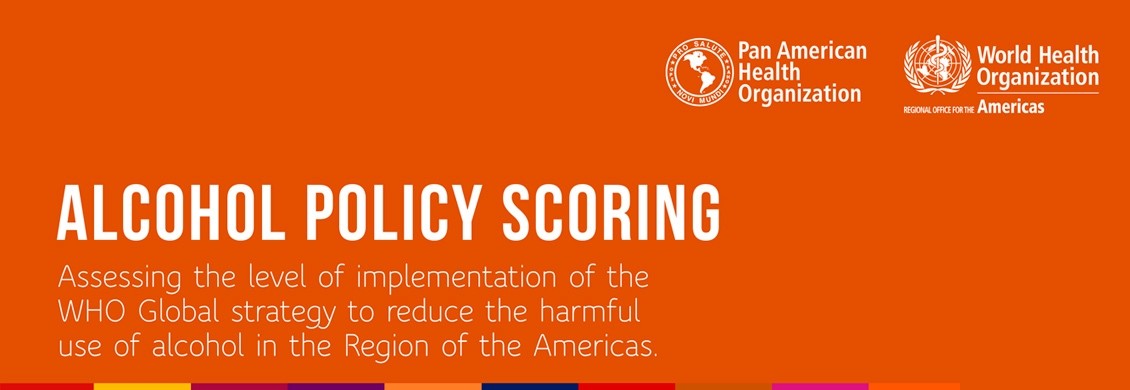ALCOHOL POLICY SCORING


Assessing the level of implementation of the WHO Global strategy to reduce the harmful use of alcohol in the Region of the Americas.
Foreword
Monitoring progress is a key component whenever planning and committing to implement health strategies, as it can help guide needed improvements and identify and respond to gaps in the public health response. Thus, in any given society, it becomes a mechanism for accountability to governments and other stakeholders involved. This report describes the construction of a series of composite indicators developed for evaluating the level of implementation of the ten policy areas of the WHO Global strategy to reduce the harmful use of alcohol (1) adopted in 2010 at the World Health Assembly (WHA)—and furthermore adopted in 2011 by all Member States in the Region of the Americas (hereafter referred to as “the Region” or simply “the Americas”) through the Regional plan of action (2) of the Pan American Health Organization, Regional Office of the World Health Organization (PAHO/WHO). The composite indicators comprise 34 summary indicators and reflect the 10 action areas in the global strategy. They measure whether a Member State has implemented a policy measure and has considered the level of empirical support for the measure’s effectiveness, as well as the measure’s level of strictness and comprehensiveness. As such, the composite indicators allow monitoring to go beyond solely tracking whether a Member State has a specific alcohol policy, to a more fine-grained approach of evaluating its individual components. The methodology used in this report was developed by the WHO Regional Office for Europe (WHO/EURO). The data used were derived from the responses made by Member States in the Americas to the last WHO Global survey on alcohol and health in 2016 (21) and ATLAS on Substance Use (ATLAS-SU): resources for the prevention and treatment of substance use disorders in 2014 (22). The report also includes an annex with a profile for each of 33 Member States in the Americas covering all ten areas of the WHO global strategy. The report serves as a useful guide in areas where alcohol policies and actions need strengthening in order to reduce the harmful use of alcohol at the national level. Despite caution being needed in the interpretation of some of the results, given the caveats identified, this report constitutes the first comparative assessment of alcohol policy implementation in the Americas. It thus provides a comprehensive overview of the various regional and national scenarios, as well as essential elements to further improve methods for evaluating the implementation of alcohol policy.


